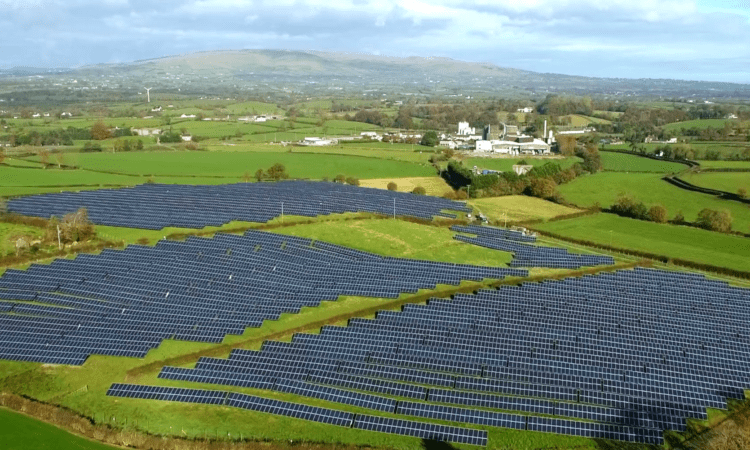There are currently no operational solar farms in the Republic of Ireland, despite the fact that between 2015 and 2018 more than 80 developments got the seal of approval regarding planning permission.
And, according to the Department of Communications, Climate Action and Environment, solar power accounted for just 0.03% of Ireland’s overall energy supply for electricity consumption in 2017.
“This is a three-fold increase on solar PV generation capacity over the previous 12 months,” a spokesperson added.
“In July, a new pilot scheme to support micro generation was introduced, initially targeting domestic self-consumption through a grant scheme for solar PV installation and battery storage,” the spokesperson said.
Solar farms
Meanwhile, AgriLand contacted the 31 local authorities in Ireland in an effort to establish just how many solar farms have been granted planning permission in this country over the last three years.
From the evidence supplied by 27 county councils, 86 developments were granted planning permission in Ireland between 2015 and 2018.
Meanwhile, the local authority in Co. Carlow granted planning permission for one, while five got the go-ahead in Co. Westmeath.
One got the go-ahead in Co. Wexford – although two solar farms were also refused planning permission – while counties Roscommon, Sligo, Leitrim, Mayo, Monaghan and Dublin, and the Dun Laoghaire/Rathdown local authority indicated that no solar farms got the green light for development in their respective jurisdictions.
Down in the south of the country, Cork County Council granted planning permission to 35 entities; one got the go-ahead in Co. Kildare, while another was refused planning permission in the county.
In Co. Wicklow one farm got the green light from the local authority there, while Tipperary County Council granted planning for four solar farms and refused permission on one.
Wexford County Council granted planning permission for one entity but refused two others in 2018.
In the west of the country, Galway County Council granted planning permission for three solar farms while three others got the go-ahead in Co. Clare.
Meanwhile, Meath County Council gave the green light for seven solar farms; another was granted planning permission in Co. Cavan and two others got the go-ahead in Co. Louth.
A further three entities were granted planning permission by Fingal County Council, where one case that was refused was later appealed to An Bord Pleanala and subsequently given the go-ahead thereafter.
Renewable Energy Directive
Under the 2009 Renewable Energy Directive, Ireland must produce at least 16% of all energy consumed by 2020.
The department said the goal will be met by 40% from renewable electricity, 12% from renewable heat and 10% from the renewable transport sector.
“The scheme will contribute to meeting Ireland’s 2020 renewable energy and emission reduction targets and focuses on heat users in the commercial, industrial, agricultural, district heating, public sector and other non-domestic heat users,” the spokesperson added.
The scheme was developed following detailed economic analysis and extensive engagement with industry and is made up of two support mechanisms – an on-going operational support for biomass boiler and anaerobic digestion heating systems and an installation grant for electric heat pumps.
